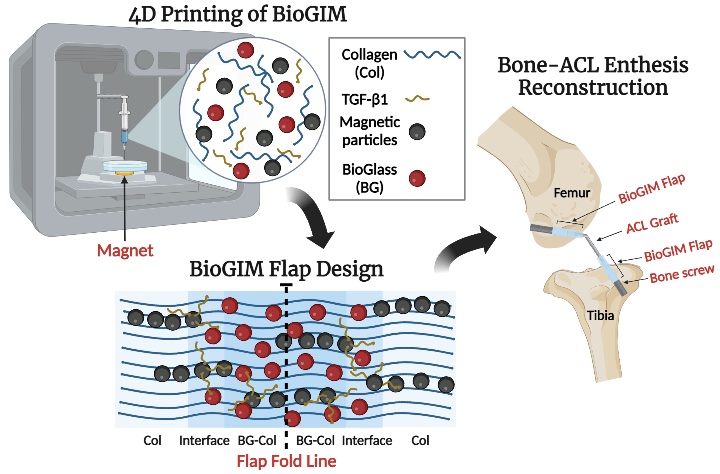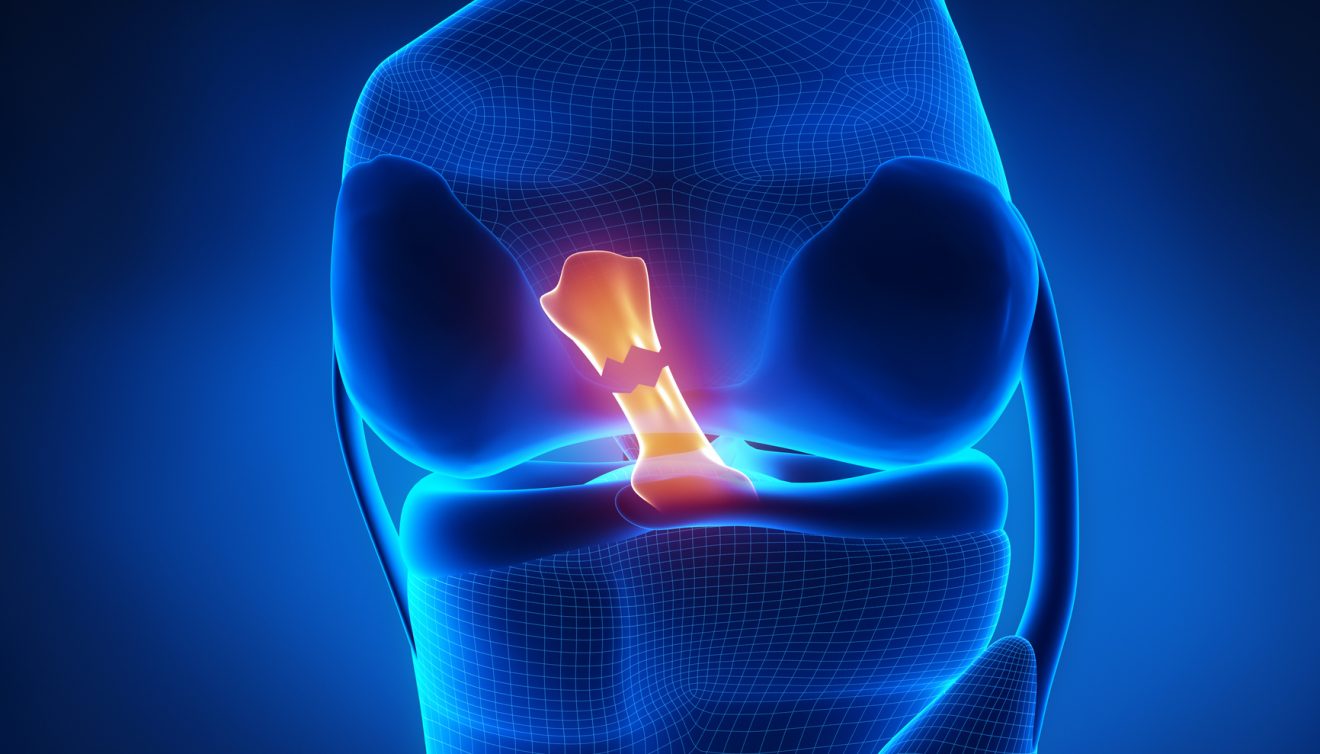Kishore Receives Second NIH Grant to Advance Groundbreaking ACL Reconstruction Research
Vipuil Kishore, an associate professor of chemical engineering, received a three-year, $450,000 National Institutes of Health grant to further his research on the development of a tissue engineering-based strategy for the treatment of highly debilitating anterior cruciate ligament (ACL) injuries.

The grant will help advance biomedical engineering research at Florida Tech by providing research opportunities to undergraduate and graduate students. Chris Bashur, chemical engineering associate professor at Florida Tech, and Melanie Coathup, professor of medicine at University of Central Florida, are collaborating with Kishore on this project.
ACL injuries are common, especially in young athletes. Approximately 175,000 ACL reconstruction surgeries are performed annually in the United States. Retear of the ACL, specifically at the region where the soft ligament meets the bone, known as the interface, is a significant clinical problem. To address this type of injury, Kishore’s lab is working on developing a novel strategy using collagen and Bioglass to fabricate a continuous mineralized gradient material for use at the ends of the ACL graft to improve the integration of the graft to the bone.
“We as human beings can sense the environment and change our behavior. For example, when you are attending a meeting at work, you can sense the work environment and exhibit a professional demeanor. At the end of the day, when you are back home, you can sense that now the environment is different, and you change your behavior to a more relaxed state,” Kishore said. “The working hypothesis of my lab is, ‘Can the cells do the same?’ That is, can stem cells sense that the properties of the Bioglass-collagen gradient material are like the existing ACL interface and thus undergo differentiation to specialized cell types and help regenerate a new and mechanically robust ACL-bone interface?”

This NIH-funded research project has three areas.
First is to develop a 4D-printing technique to fabricate a magnetically aligned, continuous Bioglass gradient integrated collagen matrix (BioGIM) that mimics the native ACL interface. Secondly, tissue-specific multilineage stem cell differentiation on BioGIM will be evaluated in vitro. The third aim is to test the efficacy of 4D-printed BioGIM on ACL interface reconstruction in a rabbit model.
“Bioglass would provide cues to the cells and help make new bone,” Kishore said. “Achieving tissue-specific cell differentiation along the BioGIM can help recreate the interfacial region and promote better integration of the ligament to the bone, so that it does not re-injure at that location.”
As native bone, ligament and fibrocartilage form, the BioGIM will degrade with time, giving way for the regeneration of the ACL interface. This process is estimated to take six months.
With a background in chemical engineering and a research focus in biomedical engineering, Kishore is gratified to do work that will help improve lives. He has been working with collagen for 15 years trying to leverage his knowledge of the material and various biofabrication methods to come up with a solution to this important clinical problem.





